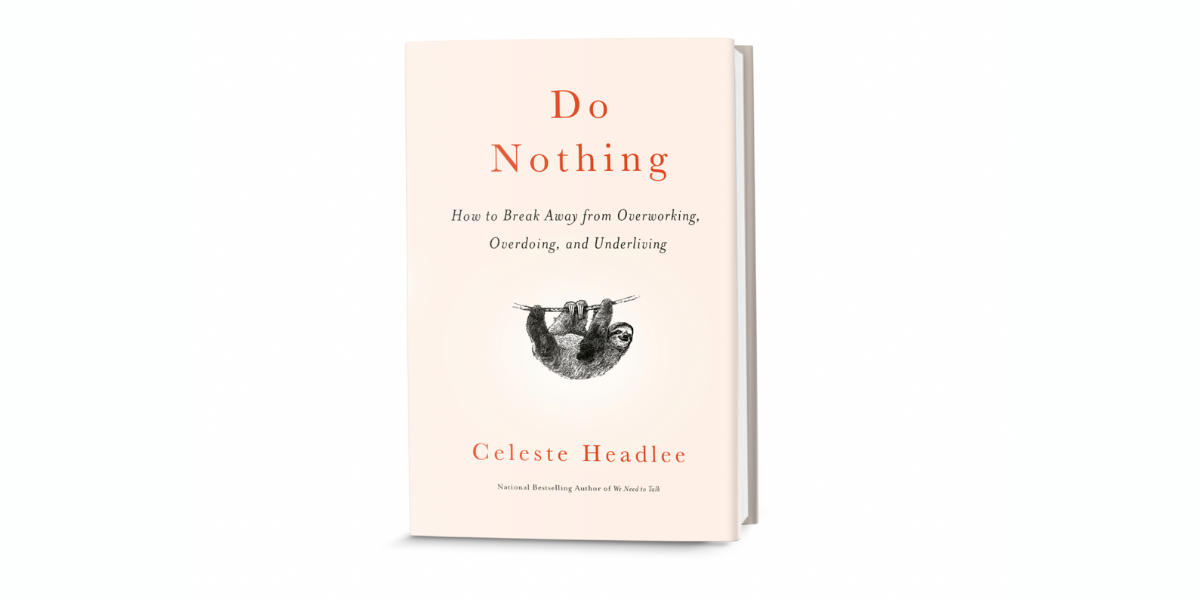Extensive research, hours of reading, slogging through historical records...
As an award-winning journalist, podcast host, speaker, and author, Celeste Headlee is no stranger to research.
Her latest book, Do Nothing, is a deep dive into humanity's relationship with work over the course of our existence and how we can fix the modern issue of burnout. And it was written entirely on Freewrite.
Of course, tracing the trajectory of human labor and existence required extensive research.
So how does Freewrite fit into Celeste's process?
Join us for an exploration of how journalists approach research and what a research-heavy workflow on Freewrite looks like.

ANNIE COSBY: Can you give us a short history of your journey to becoming a writer?
CELESTE HEADLEE: It depends on what you mean by writer. I've been a journalist for over 25 years. But I got my first book contract in 2016, and that's when I think I became a writer the way most people mean it.
I'm now working on my fourth full-length book, and I've had two shorter books, as well. I’m also a public speaker, so I'm writing speeches all the time.
Essentially, most of what I do, including journalism, involves writing of some kind.
AC: Do Nothing was not your first book, but it is the first book you wrote on Freewrite.
CH: Yes, Do Nothing was the first book I wrote beginning to end on my Freewrite.
And it required a lot of research. I had to read a lot of extraordinarily boring books and labor records about the way people spent their days in ancient Greece and all these other things so that nobody else has to do that.
AC: [laughs] That’s very appreciated.
CH: Yes, I’m going to suffer for you.
But many of the challenges I ran into are the same as with any research that predates the Industrial Revolution. If you're looking at some narrative written by a landowner in the medieval age talking about the behavior of his serfs, that's not particularly accurate.
You need to find the actual records of these things, which often no library in the world has — except maybe the Library of Congress — and maybe even not the Library of Congress, because a lot of these texts predate America.
The other thing is that you have to ask the right questions. That's always the challenge in research.
And you need to be as unbiased as possible. You have to make sure you are not skewing your research, that you're not just looking for the answer you want.
So I had to ask questions not like “Did people work harder before the factories?” But more objective: “How many hours per day did the average manual worker work?” And so much of it is dependent on income level or class, so I had to ask these questions for every single different group of people.
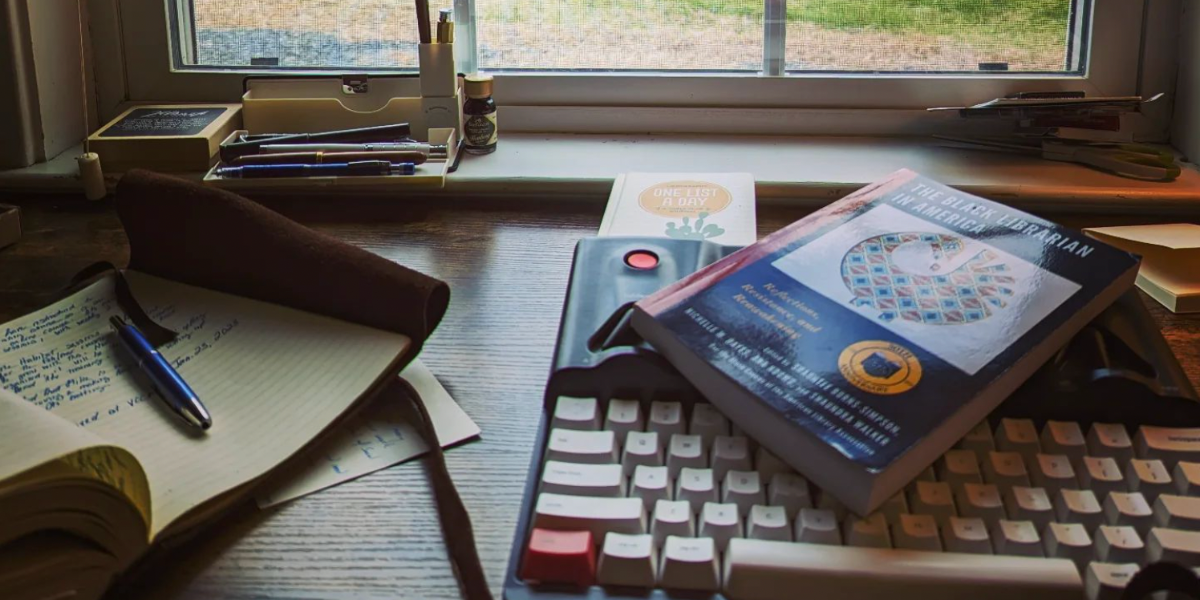
Photo by Celeste Headlee
AC: At Freewrite, we often get pushback from people doing research-heavy work who say distraction-free devices wouldn’t work for them because of the need to look things up. We obviously disagree, and think research should not happen at the same time as drafting. You do this regularly — what does your process look like?
CH: I do research first, and then I create an outline and sort all my tidbits, all my citations, all the statistics into the outline.
By the time I'm sitting down to write at my Freewrite, I have everything in basic order and printed on actual paper. I put them up on little stands in front of me, and when I finish using a citation or a resource, I put a pen mark through it.
Obviously, you're going to go back later and shift stuff around during the editing process or add citations, and I hire a fact-checker. Frankly, that kind of work doesn't require deep focus. But the writing part of it needs my full executive function.
So I just sit there at the Freewrite, not able to do a “real quick” check on the internet for anything. Not being able to go back, and cut and paste, and all of that stuff, it freed me. And I felt better.
In days past, as a journalist, you sit at the computer and you're pulling tape and blah, blah, blah, pulling clips from interviews... You get done and you're exhausted. You just feel done.
That’s because, A — computer screens are very, very exhausting to your brain and your eyeballs.
And B — it's because I had a billion tabs open. Why do we think we need to keep them open? Do we really think we're saving time? It's ludicrous.
But the way I feel after spending several hours writing without distractions on Freewrite is worlds away from the way I feel when I get up from my computer at the end of the day.
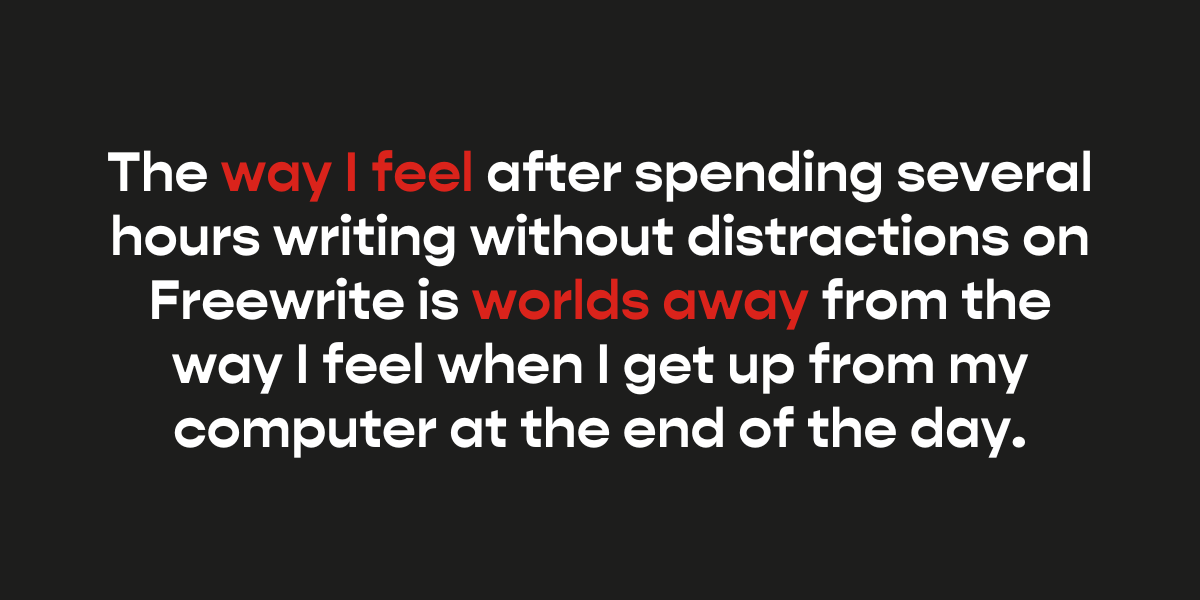
AC: So even if your writing is based on research, the distraction-free environment helps.
CH: And not only that — you do better writing because you're able to do the writing in a way that is straightforward: beginning, middle, and end.
You're sitting down, and you have an outline in front of you, and you're writing the story. You're saying, “Once upon a time, there was a woman who was getting sick all the time and couldn't figure out what was going wrong…”
It gives you a kind of continuity that you don't get when you're constantly flipping to a different tab, looking stuff up, using a thesaurus.
You know, Stephen King says, any word that you found in the thesaurus is the wrong word.
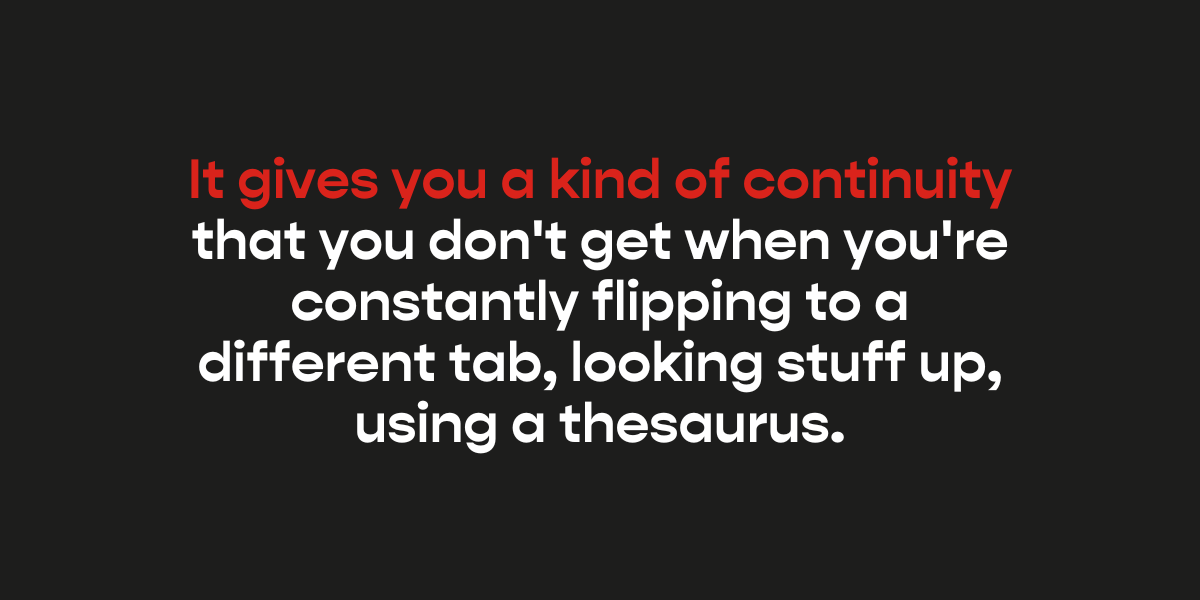
I'm completely paraphrasing his wonderful book on writing, but he's basically saying, stop checking the thesaurus. Use your own voice.
Using Freewrite forces you to do that. Essentially what you're doing is Joan Didion’s shitty first draft.
And you think you're making a shitty first draft, but the beauty of it is that it's not as shitty as you thought it was. It's your own voice. You're explaining what's happening and telling the story in your words — and that requires real focus.
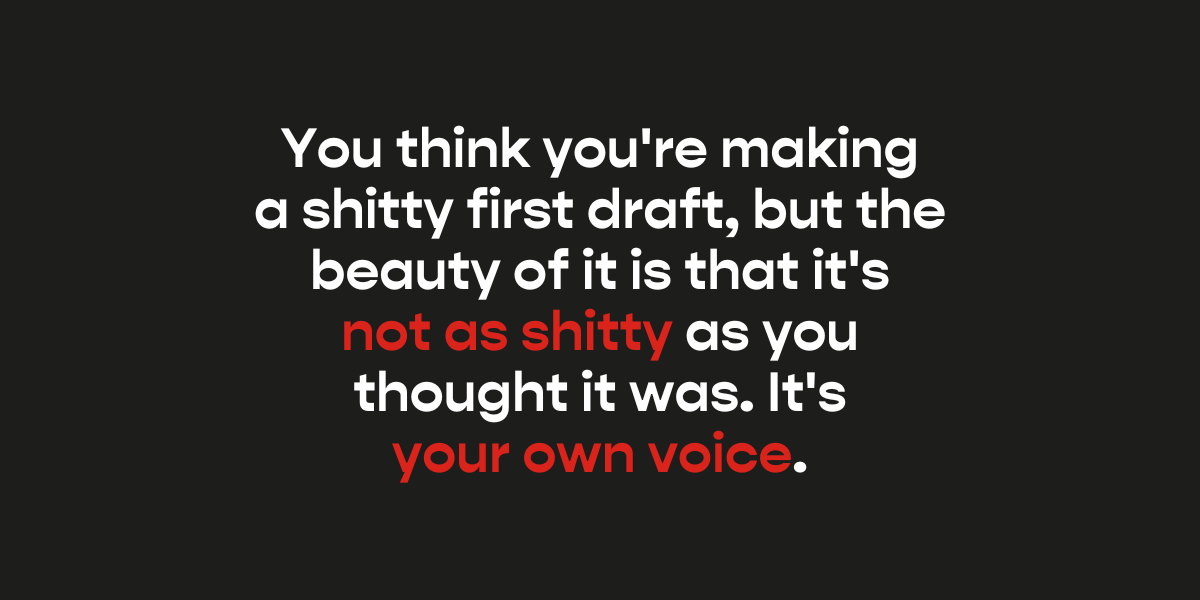
AC: And when you get to editing, you’re sometimes surprised to find, wait, that came out of my brain? Like you said, it doesn’t exhaust you the way striving for perfection and editing-as-you-go is exhausting.
CH: Especially if you're a professional writer, or you do any kind of writing on a regular basis, even though it's creative work, it's still work. And so you can dread it, right?
With Freewrite, I don’t get that dread. I don't dread sitting down in front of it, because it's not going to make me feel horrible.
Working on an instrument that doesn't deplete you… I can walk away from my Freewrite and feel fine. I can go do other stuff that day, which is totally not possible if I sit there in front of the computer for five hours.
It’s making writing an enjoyable experience rather than just this burden.
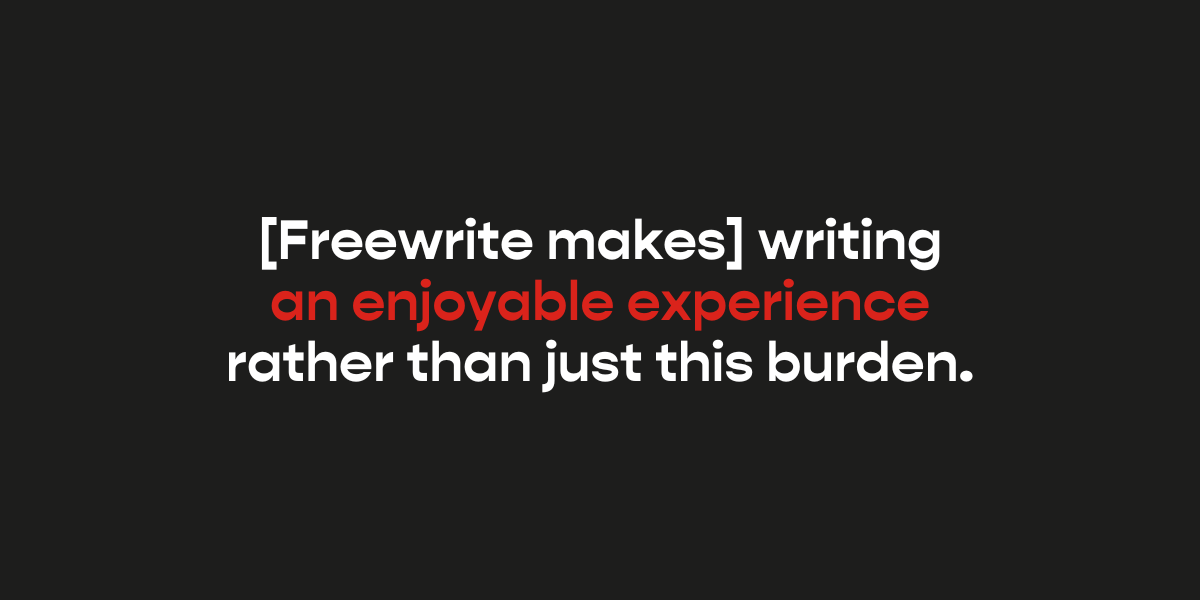
Read our interview with Celeste all about the life-changing philosophy she outlines in her latest book, Do Nothing.

















